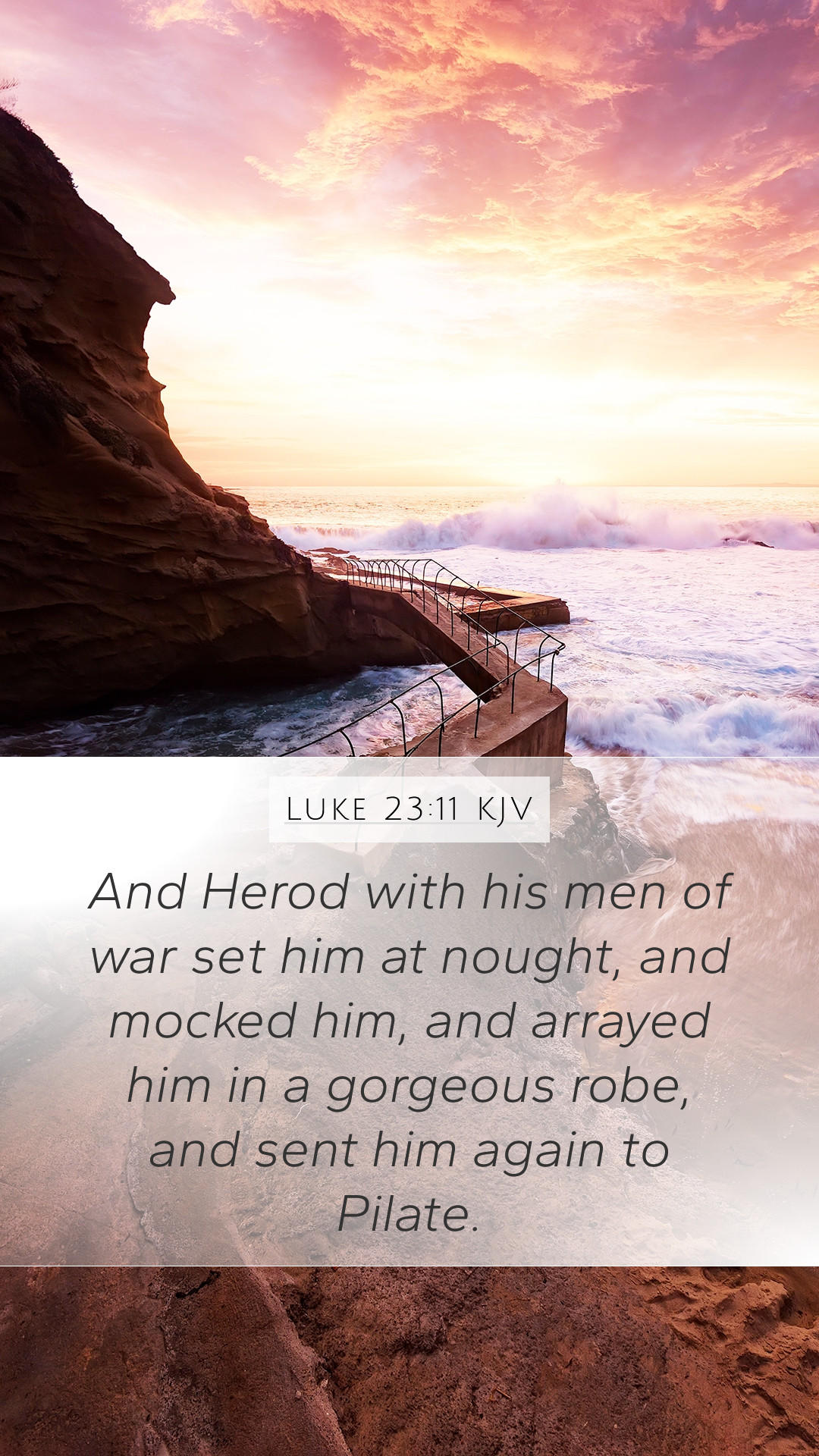Understanding Luke 23:11 - Bible Verse Meanings and Interpretations
In this exploration of Luke 23:11, we delve into the rich meanings and interpretations surrounding this significant Bible verse. This verse captures a pivotal moment in the Passion narratives of Jesus, specifically during His trial before Pilate. The insights drawn from public domain commentaries, including those by Matthew Henry, Albert Barnes, and Adam Clarke, provide a profound understanding of its implications within Scripture.
Verse Context and Overview
Luke 23:11 states: "And Herod with his men of war set him at nought, and mocked him, and arrayed him in a gorgeous robe, and sent him again to Pilate." This verse occurs during the scene of Jesus' trial and reflects the disdain the authorities had for Him.
Historical Background
The significance of this verse cannot be understated; it occurs during a period of political and religious turmoil in Judea. The interaction between Jesus, Herod, and Pilate highlights both the prophecy and the fulfillment of disdain towards the Messiah. To fully grasp the meaning of this Bible verse, understanding the historical context is crucial.
Key Themes from Public Domain Commentaries
-
Mockery and Rejection: Both Matthew Henry and Adam Clarke emphasize the mockery faced by Jesus. This ridicule was an integral part of the suffering He endured, demonstrating humanity’s rejection of divine authority and truth.
-
Symbol of Royalty: The "gorgeous robe" mentioned symbolizes how the leaders attempted to mock Jesus' kingship. Albert Barnes notes that this act was a direct ridicule of the claim of Jesus to be the King of the Jews, further emphasizing the cover of divine irony in Jesus’ true kingship as opposed to earthly ideals.
-
Your Will Be Done: The actions of Herod can also be interpreted as part of God’s sovereign plan, a theme echoed by many commentators. While these authorities seemed to act on their own accord, it aligns with the prophecy of the suffering servant, an idea deeply rooted in Biblical exegesis focusing on prophecy fulfillment.
-
Divine Silence: Both Matthew Henry and others highlight the silence of Jesus amidst this chaos, which speaks volumes about His obedience and submission to God’s will.
Application of the Verse in Today’s Life
Understanding this passage invites believers to reflect on their own attitudes toward authority and suffering. The way Jesus was treated should challenge individuals to examine their responses in times of trial. For those studying Scripture, it illustrates the stark contrast between worldly power and divine sovereignty.
Conclusion
Luke 23:11 serves not just as a historical account but as a spiritual insight into the nature of Christ's mission and the human condition. The interplay between ridicule, divine purpose, and silence speaks to the heart of Bible study insights. As we engage in Bible study groups or through online Bible study resources, reflecting on verses like this enriches our understanding and application of God’s Word.
Cross References
- Matthew 27:27-31
- John 19:1-3
- Isaiah 53:3


